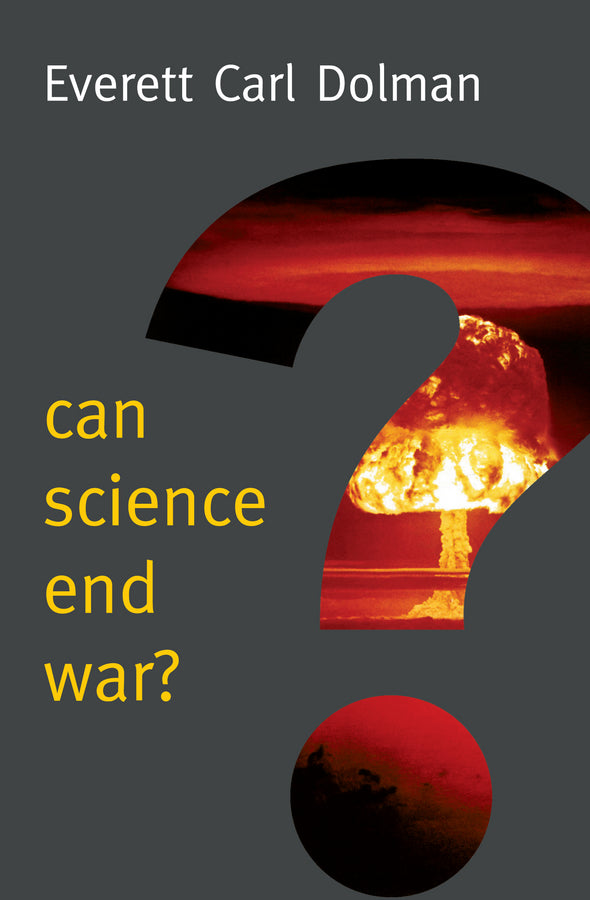Description
Discover the provocative insights of **'Can Science End War?'** by Everett Carl Dolman, a compelling book that delves into the intricate connections between **science and warfare**. Published in 2015 by John Wiley & Sons, this **200-page** exploration addresses the stark realities of future combat, with dystopian visions of autonomous drones and relentless technological advancements reshaping the battlefield. As we unravel the role of **science in military history**, we confront a critical question: can scientific progress lead to lasting peace, or will it only amplify **the destructiveness of future conflicts**? While science has historically contributed to ending wars, from the effectiveness of tanks in World War I to the atomic bomb’s impact on World War II, Dolman challenges the reader to ponder whether innovation can cultivate conditions for a **permanent peace**. With the rise of technology that makes wars increasingly horrific, this book offers a thought-provoking narrative that examines if science can prevent war or if it merely escalates human conflict. Ideal for academics, military strategists, and anyone interested in the ethics of warfare, **'Can Science End War?'** invites readers to reflect on what it truly means to be human in the face of relentless technological change. Shipping for this item is free. Please allow up to 6 weeks for delivery. Once your order is placed, it cannot be cancelled. Get your **brand new** copy of **'Can Science End War?'** with ISBN 9780745685960 today and engage with these pressing questions.
Note: Shipping for this item is free. Please allow up to 6 weeks for delivery. Once your order is placed, it cannot be cancelled.
Condition: BRAND NEW
ISBN: 9780745685960
Year: 2015
Publisher: John Wiley & Sons (UK)
Pages: 200
Description:
Free-roaming killer drones stalk the battlespace looking for organic targets. Human combatants are programmed to feel no pain. Highpower microwave beams detonate munitions, jam communications, and cook internal organs.Is this vision of future war possible, or even inevitable? In this timely new book, Everett Carl Dolman examines the relationship between science and war. Historically, science has played an important role in ending wars “ think of the part played by tanks in breaching trench warfare in the First World War, or atom bombs in hastening the Japanese surrender in the Second World War “ but to date this has only increased the danger and destructiveness of future conflicts. Could science ever create the con-ditions of a permanent peace, either by making wars impossible to win, or so horrific that no one would ever fight? Ultimately, Dolman argues that science cannot, on its own, end war without also ending what it means to be human.
Note: Shipping for this item is free. Please allow up to 6 weeks for delivery. Once your order is placed, it cannot be cancelled.
Condition: BRAND NEW
ISBN: 9780745685960
Year: 2015
Publisher: John Wiley & Sons (UK)
Pages: 200
Description:
Free-roaming killer drones stalk the battlespace looking for organic targets. Human combatants are programmed to feel no pain. Highpower microwave beams detonate munitions, jam communications, and cook internal organs.Is this vision of future war possible, or even inevitable? In this timely new book, Everett Carl Dolman examines the relationship between science and war. Historically, science has played an important role in ending wars “ think of the part played by tanks in breaching trench warfare in the First World War, or atom bombs in hastening the Japanese surrender in the Second World War “ but to date this has only increased the danger and destructiveness of future conflicts. Could science ever create the con-ditions of a permanent peace, either by making wars impossible to win, or so horrific that no one would ever fight? Ultimately, Dolman argues that science cannot, on its own, end war without also ending what it means to be human.

